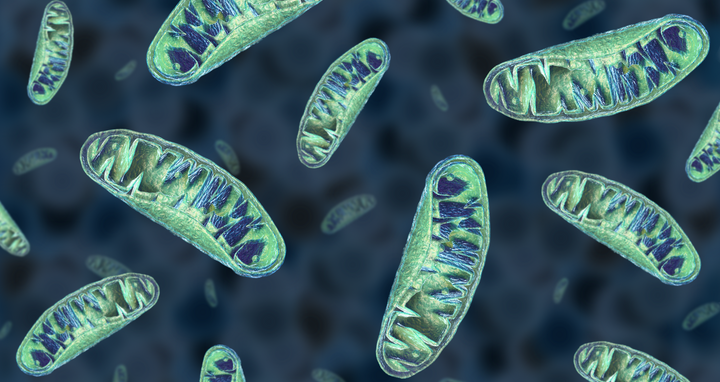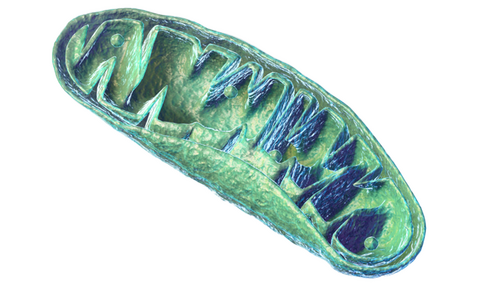Better protecting the mitochondria
Errors in the DNA of our mitochondria – the tiny “power plants” within cells – impair cellular energy production and metabolism. This may result in primary mitochondrial diseases (PMDs), which display a wide range of symptoms. PMDs can affect the brain as well as other organs, including the sensory epithelia and the eye, heart, and skeletal muscles. Affected individuals suffer epileptic seizures, stroke-like events, hearing loss, retinopathy, and exercise intolerance.
The company OMEICOS Therapeutics, a spin-off from the Max Delbrück Center, will test its drug candidate, OMT-28, in PMD patients in a Phase IIa clinical trial. The German Federal Ministry of Education and Research (BMBF) is funding the research to the tune of €2.5 million euros as part of its “KMU-innovativ: Biomedizin” program.
Synthetic analogues stay active longer
Mitochondria are the "power plants of the cells".
OMT-28 is a synthetically produced molecule of a metabolite from omega-3 fatty acids, which are naturally present in fish oil. Under the direction of Dr. Wolf-Hagen Schunck and Prof. Dominik Müller, research labs at the Max Delbrück Center and the Experimental and Clinical Research Center (ECRC) – a joint institution of Charité and the Max Delbrück Center – investigated whether these fatty acids have a protective effect on the heart. During the research, they made a surprising discovery: It is not the omega-3 fatty acids themselves but rather metabolites called epoxyeicosanoids, which the body derives from the fatty acids, that protect the heart. However, this works better for some people than for others, and the body breaks down these substances very quickly – so their beneficial effect is short-lived. So the researchers pursued the idea of artificially producing improved versions of these metabolites that work just as well or better and remain active in the body longer.
OMEICOS Therapeutics has already shown in two clinical trials that OMT-28 is well tolerated and safe in humans. In preclinical in vitro and in vivo tests, the positive influence of OMT-28 on mitochondrial function and its impact on inflammatory processes associated with the condition has also been demonstrated. As a result, the company now intends to test the new drug in patients with PMDs. “Our first clinical trial in PMD patients is well on track,” says Dr. Robert Fischer, CEO/CSO of OMEICOS Therapeutics. “This will allow us to generate meaningful safety data and show the drug’s impact in this patient group across a set of clinically relevant parameters.”
Text: Jana Ehrhardt-Joswig






